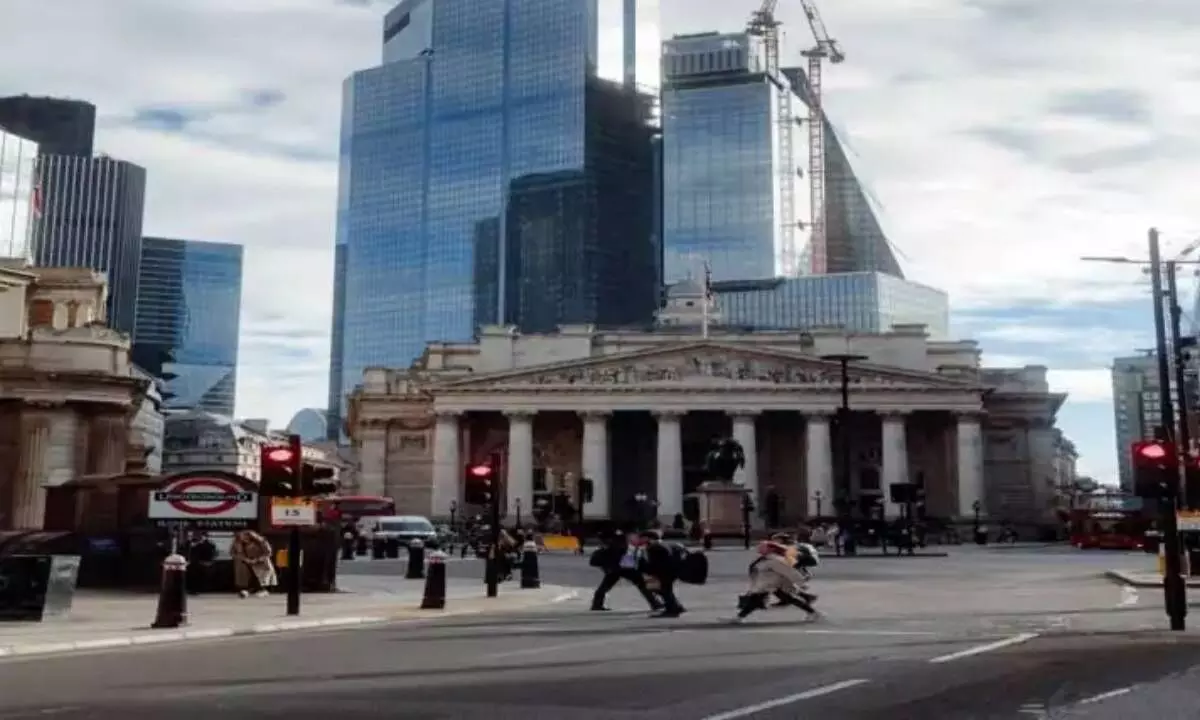Fear of Lehman-like capitulation lessens as authorities respond promptly
The crash and recovery of UK gilts after the United Kingdom government reversed nearly all the tax cuts may have one positive side-effect on global markets: it could reassure markets that even if there are unknown unknowns like overleveraged institutions, regulators and authorities won’t mind bending the rules and eating humble pie, to avoid a default like Lehman Brothers. The rise of not just UK bonds but indeed many global risk assets in the past 24 hours is probably in celebration of this point.
image for illustrative purpose

The crash and recovery of UK gilts after the United Kingdom government reversed nearly all the tax cuts may have one positive side-effect on global markets: it could reassure markets that even if there are unknown unknowns like overleveraged institutions, regulators and authorities won't mind bending the rules and eating humble pie, to avoid a default like Lehman Brothers. The rise of not just UK bonds but indeed many global risk assets in the past 24 hours is probably in celebration of this point.
Since the June fall the S&P 500 has repeatedly seen selling between 4,100-4,200 levels. One can pinpoint to similar resistances (17,900-18,000) in other major indices like Nifty as well. One big reason for this resistance has been a latent fear that the rapid hiking of rates and sucking out of liquidity by all major central banks will catch some institutions swimming naked. The events in the UK in the last fortnight proved that these fears are well-founded. No one expected that in a developed financial market like the UK, pensions funds — known to be solid risk averse institutions — will be found overleveraged or holding derivatives.
Nor did anyone expect the UK government — the oldest democracy in the world, with the world's oldest global financial centre in its jurisdiction — to indulge in such thoughtless policy flip-flop: to announce a yawning fiscal deficit in the teeth of double digit inflation, when bond markets were already skittish with uncertain geopolitics, and unprecedented energy prices. Such immature policy adventures are expected from banana republics, and from the derisively termed 'under developed' countries.
But the crisis also reassured global markets of mature reaction by politicians and regulators, when systemically important institutions or markets come to the brink. As leveraged pensions funds started off a panic vicious bond-selling, the Bank of England shrugged off all fears of criticism and boldly reversed its bond sale plan. It went out and bought bonds for a full two weeks unconcerned about criticism that it is diluting its monetary stance; the idea was to give pension funds adequate time to arrange for funds at not-too-distressed prices. Even more sensible was the way in which it ended the bond purchase programme, giving the UK government adequate notice that it won't reverse its inflation-fighting mandate beyond a point, and it was time now for the fiscal authorities to undo their part of the damage.
UK Prime Minister Liz Truss and her Cabinet appear to have taken the hint and acted with equal speed and sense. The finance minister, the author of the tax cuts in the mini-budget, was sacked and a new chancellor of the exchequer was appointed, who quickly announced a near complete reversal of the tax cuts which created the chaos in the first place.
For markets, this sordid episode indicated that policy-makers and regulators are watching financial stability like a hawk, and will not be held back by ideology or ego when financial stability is at stake. This realisation that a Lehmanesque capitulation won't be allowed may put a bottom for the markets for now.
However, there are other dangers for the market.
Geopolitical minefields can still erupt. The US administration, earlier this month, announced restrictions on US persons supporting the development, production, or use of integrated circuits at some chip plants located in China. These restrictions appear to be applicable to all US Green Card holders, as well as US citizens working for the identified chip plants. It isn't yet clear how severely it may cripple some Chinese chipmakers. This step may well create a worldwide shortage of some chips once again. If the Chinese retaliate, there can be more geopolitical uncertainties.
Short point, world markets may have found some kind of a 'put' from global financial regulators, but this 'put' can be swept away by geopolitical uncertainties.

